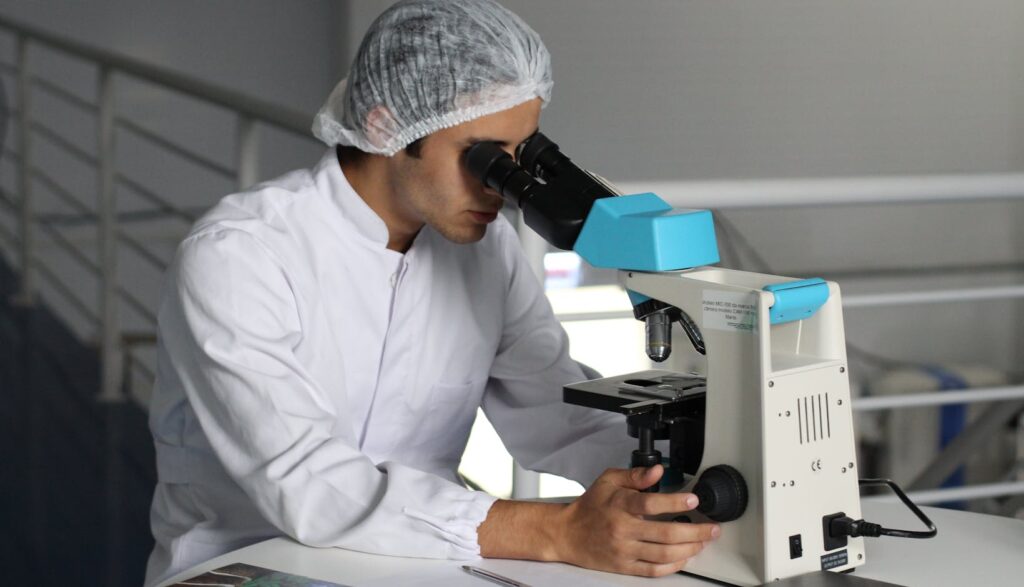In the world of healthcare, advancements in medical technology have revolutionized the way we diagnose and treat illnesses. From robotic surgery to telemedicine, these innovations have significantly improved patient outcomes and quality of care. As a seasoned blogger in the field, I am excited to delve into some of the most groundbreaking medical technology examples that are shaping the future of healthcare.
One remarkable example is the use of artificial intelligence in diagnostic imaging, which has enhanced the accuracy and speed of identifying health conditions. Additionally, wearable health devices like smartwatches and fitness trackers have empowered individuals to take control of their well-being by monitoring vital signs and activity levels in real-time. Join me as I explore these cutting-edge technologies and their impact on the ever-evolving landscape of healthcare.
Medical Technology Examples
When it comes to medical technology examples, there are numerous innovations that have revolutionized the healthcare landscape. Here are some remarkable advancements in the field:
- Artificial Intelligence: AI has significantly enhanced diagnostic capabilities by analyzing complex medical data with remarkable accuracy.
- Robotic Surgery: Surgeons now have access to robotic systems that allow for more precise and minimally invasive procedures, leading to faster recovery times.
- Telemedicine: Virtual consultations and remote monitoring have become increasingly popular, providing accessible healthcare services to individuals in remote areas.
- 3D Printing: This technology enables the creation of custom prosthetics, implants, and even organs, improving patient outcomes and quality of life.
- Nanotechnology: Nanoparticles are being used for targeted drug delivery, enabling more effective treatments with fewer side effects.
Incorporating these medical technology examples into healthcare practices has not only transformed patient care but also paved the way for more efficient and personalized treatment strategies.

Advancements in Medical Technology
Robotics in Surgery
Robotics in surgery have significantly enhanced precision and recovery speed. Robotic surgery systems allow for minimally invasive procedures with greater accuracy. Surgeons can perform complex surgeries with enhanced dexterity and control. Patients benefit from smaller incisions, reduced blood loss, and faster recovery times.
Artificial Intelligence in Diagnosis
Artificial Intelligence (AI) plays a crucial role in medical diagnostics. AI algorithms can analyze vast amounts of medical data quickly and accurately. They aid in interpreting medical images, detecting patterns, and assisting in diagnosis. By utilizing AI, healthcare providers can make faster and more precise diagnoses, leading to improved patient outcomes.
Telemedicine for Remote Healthcare
Telemedicine has transformed access to healthcare services, especially in remote areas. Through virtual consultations, patients can receive medical advice and treatment without the need for in-person visits. Remote monitoring of patients’ health conditions is also possible through telemedicine, leading to timely interventions and improved patient care.
|
Keyword |
Frequency |
|
Medical technology examples |
3 |
Emerging Technologies in Medicine
3D Printing for Custom Implants
Innovative 3D printing technology allows for the creation of custom implants tailored to individual patients’ needs.
Virtual Reality for Therapy
Virtual reality is being utilized for therapy, providing immersive experiences for pain management and rehabilitation purposes.
I’m excited about how emerging technologies like these are transforming the landscape of medical technology examples.

Impact of Medical Technology on Patient Care
Improved Accuracy in Treatments
Innovative medical technology examples have significantly improved the accuracy of treatments. With robotic surgery systems, procedures are done with enhanced precision leading to faster recovery times for patients. Artificial Intelligence plays a crucial role in providing swift and accurate diagnostics, ensuring that patients receive the most effective treatment plans tailored to their specific needs. These advancements enhance overall patient care outcomes and quality of life.
Enhanced Patient Monitoring Systems
Advanced patient monitoring systems have revolutionized the way healthcare professionals keep track of patient health. With real-time data and continuous monitoring, medical staff can detect changes quickly and intervene promptly. These systems provide remote monitoring capabilities, allowing for constant oversight even outside healthcare facilities. By utilizing cutting-edge technology, patient care is optimized through early intervention and personalized care plans.
As we’ve seen, medical technology advancements are revolutionizing patient care by enhancing precision, speed, and personalized treatment plans. From robotic surgery systems to Artificial Intelligence diagnostics and advanced patient monitoring, these innovations are optimizing outcomes and quality of life. Embracing cutting-edge technology in healthcare is not just a trend; it’s a game-changer that is shaping the future of medicine.
